Humans
-
 Archaeology
ArchaeologyAncient Scythians had cultural roots in Siberia
A possible sacrificial ritual from around 2,800 years ago suggests mounted herders from Siberia shaped a Eurasian culture thousands of kilometers away.
By Bruce Bower -
 Health & Medicine
Health & MedicineBlood pressure may read falsely high if the arm isn’t positioned properly
A clinical trial found blood pressure readings were higher with the arm on the lap or along the side, compared with supported at heart height.
-
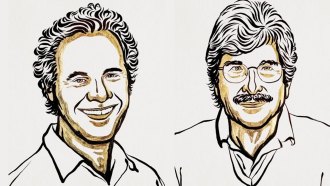 Genetics
GeneticsThe discovery of microRNA wins the 2024 physiology Nobel Prize
Victor Ambros and Gary Ruvkun found a new principle of gene regulation essential for all multicellular organisms.
-
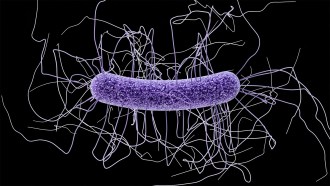 Health & Medicine
Health & MedicineAn mRNA vaccine protected mice against deadly intestinal C. difficile bacteria
An mRNA vaccine that targets several aspects of C. difficile’s ability to cause severe disease prevented major symptoms and death in mice.
-
 Health & Medicine
Health & MedicineBrain-controlled bionic limbs are inching closer to reality
Bionics engineers typically view biology as something to be worked around. “Anatomics” engineers the body to be part of the system.
By Simon Makin -
 Health & Medicine
Health & MedicineA hurricane’s aftermath may spur up to 11,000 deaths
Hurricanes like Helene may indirectly cause deaths for years. Stress, pollution and a loss of infrastructure could all contribute to tropical cyclone fatalities.
By Meghan Rosen -
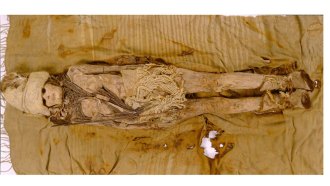 Archaeology
ArchaeologyThe world’s oldest cheese is now revealing some of its secrets
A DNA analysis of the kefir cheese, first found about 20 years ago on 3,600-year-old mummies in China, confirms its age and pinpoints its origins.
-
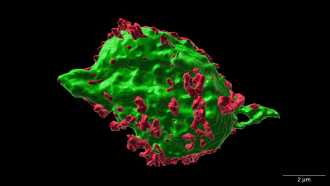 Neuroscience
NeuroscienceA study in mice hints at a new way to treat spinal cord injuries
The finding suggests that a drug to ease swelling can speed recovery and stop cell death.
-
 Health & Medicine
Health & MedicineSemaglutide may reduce opioid overdoses, a new study suggests
A study of people with type 2 diabetes and opioid use disorder suggests that the key ingredient in Ozempic and Wegovy shows promise against addiction.
By Meghan Rosen -
 Psychology
PsychologyA brain network linked to attention is larger in people with depression
Brain scans revealed that teenagers with larger attention-driving networks were more likely to develop depression.
-
 Neuroscience
NeuroscienceBy studying the eyes, a researcher explores how the brain sorts information
Freek van Ede seeks to understand how the brain selects information to plan for the future. He’s finding clues in the tiny movements people make with their eyes.
-
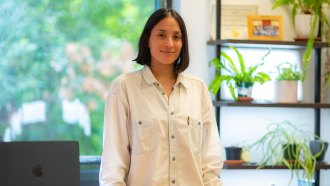 Neuroscience
NeuroscienceA cell biologist is investigating the balance of brain flexibility, stability
Andrea Gomez, a Berkeley molecular and cell biologist, applies her wide-ranging curiosity to brains’ mysteries ranging from synapses to psychedelics.